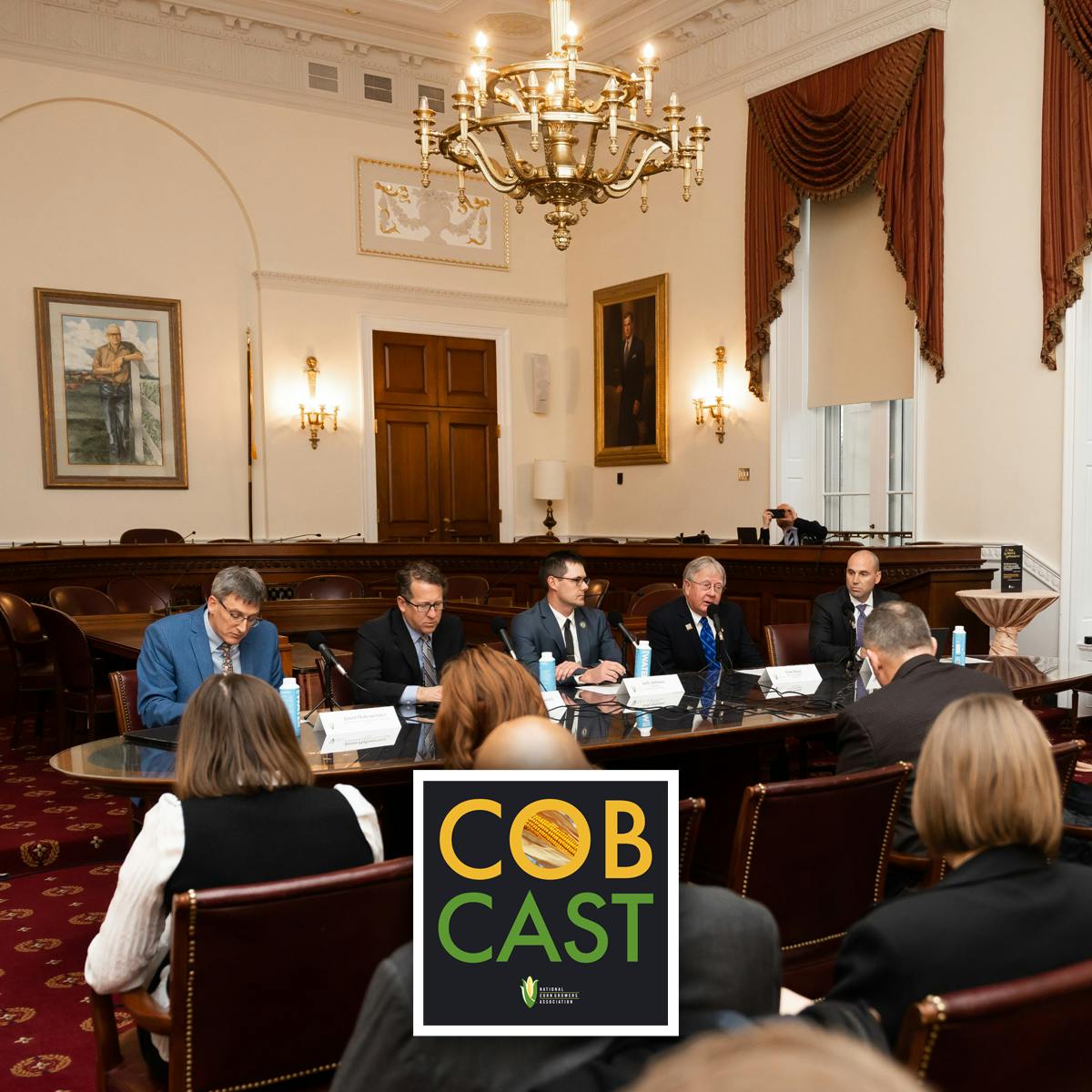
Cobcast: Inside the Grind with the National Corn Growers Association
Author: National Corn Growers Association
Subscribed: 11Played: 167Description
Big picture conversations about the future of agriculture with the National Corn Growers Association and its network of industry leaders.
Join us every month as we explore new topics and advocate for America’s corn farmers. From the fields of the Corn Belt to the DC Beltway, we’ll make sure that the growers who feed and fuel America have a say in issues that are important to them.
Founded in 1957, the National Corn Growers Association represents nearly 40,000 dues-paying corn farmers nationwide and the interests of more than 300,000 growers who contribute through corn checkoff programs in their states.
NCGA and its affiliated state organizations work together to create and increase opportunities for corn growers, with a vision of sustainably feeding and fueling a growing world.
























